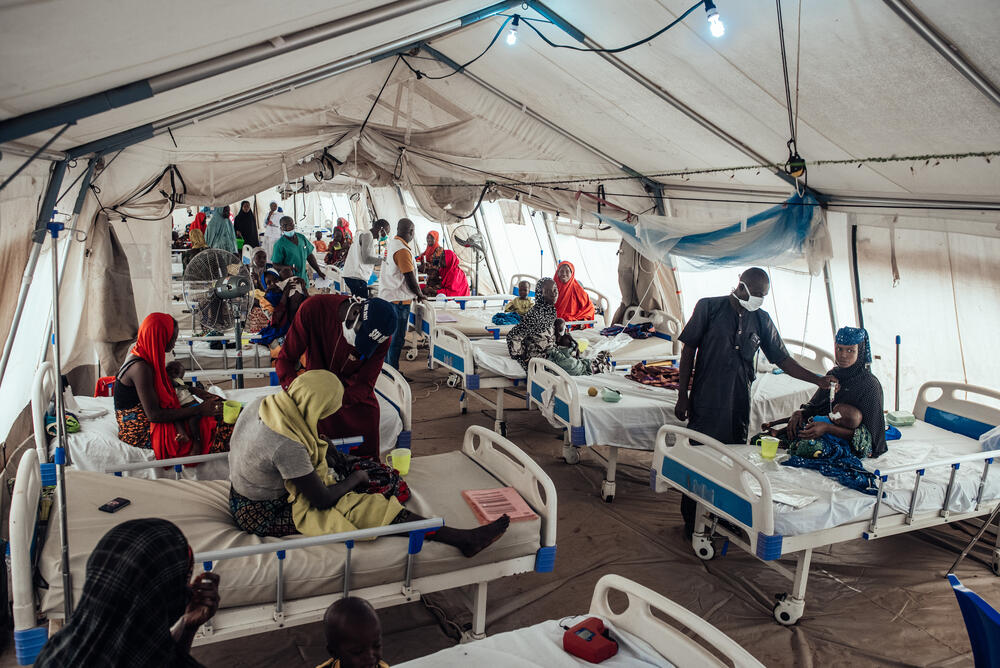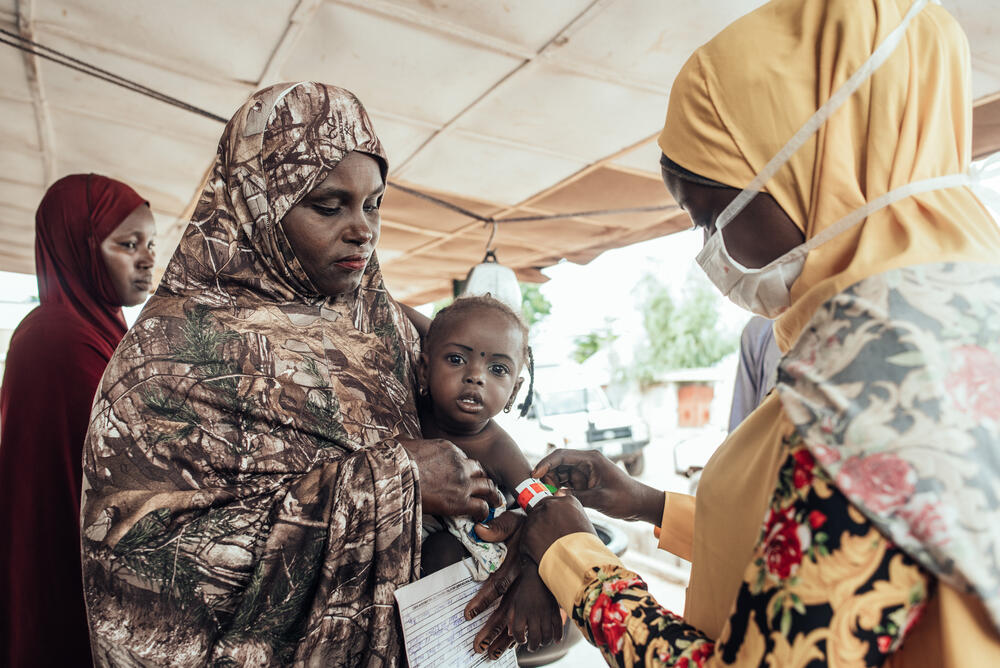Malnutrition: MSF calls for catastrophic situation in northwest Nigeria to be recognised
The malnutrition crisis in northwest Nigeria is continuing at catastrophic levels.
Médecins Sans Frontières / Doctors Without Borders (MSF) is now calling for humanitarian organisations to act urgently, and for the United Nations (UN) to change its response plan for Nigeria.
Since the beginning of 2022, MSF teams have witnessed extraordinarily high numbers of children with malnutrition in our medical projects located in five states across the northwest of the country.
Multiple factors have led to this sharp increase in malnutrition in the region over the last year.
“With increasing insecurity, climate change and global inflation of food prices in a post-pandemic world, we can only imagine this crisis getting worse,” says Dr Simba Tirima, MSF country representative in Nigeria.

Help us prepare for the next emergency
“The Nigerian authorities need support to deal with a crisis of this magnitude. This must include emergency humanitarian funding now for organisations able to respond and a commitment to include northwest Nigeria in the UN’s humanitarian response plan for 2023.”
100,000 children
Since January, MSF teams working in collaboration with the Nigerian health authorities have treated close to 100,000 children suffering from acute malnutrition across 34 outpatient centres.
We have also admitted about 17,000 children requiring hospital care to 10 inpatient centres in Kano, Zamfara, Katsina, Sokoto and Kebbi states.
In Zamfara state, one of the areas most affected by ongoing violence and banditry, we recorded a 64 percent increase in the number of severely malnourished children treated in MSF-supported malnutrition centres from January to August 2022 when compared to the previous year.
MSF’s own nutritional surveys have also underlined the severity of the crisis in areas that are less affected by violence and insecurity.
In Mashi, an area in Katsina state, our teams found a 27 percent rate of acute malnutrition and a seven percent rate of severe acute malnutrition in June. This is despite the community being relatively spared from violence and forced displacement.
These rates indicate a critical emergency.
UN response
The UN’s current humanitarian response plan for Nigeria focuses on the critical situation in the country’s northeast region, excluding the northwest.
Unlike MSF, which is not funded by this plan, many organisations are currently unable to respond to the acute needs in the northwest because they rely on it for funding.
Including northwest Nigeria in the UN plan would allow for a broader and more sustained response.
“We understand the UN, donors and other stakeholders are increasingly aware of the extent of the crisis in the northwest, but there is a need to go beyond discussions,” says Froukje Pelsma, head of MSF in Nigeria.
“It’s essential that the northwest is included in the next Nigeria humanitarian response plan for 2023 because this plays a key role in mobilising the resources to save lives.”
MSF and malnutrition
Around 45 percent of all deaths in young children are linked to malnutrition.
When children suffer from acute malnutrition, their immune systems are so impaired that the risk of death is greatly increased. The critical age for malnutrition is from six months – when mothers generally start supplementing breast milk with other foods – to 24 months. However, children under five, adolescents, pregnant or breastfeeding women, the elderly and the chronically ill are also vulnerable.

